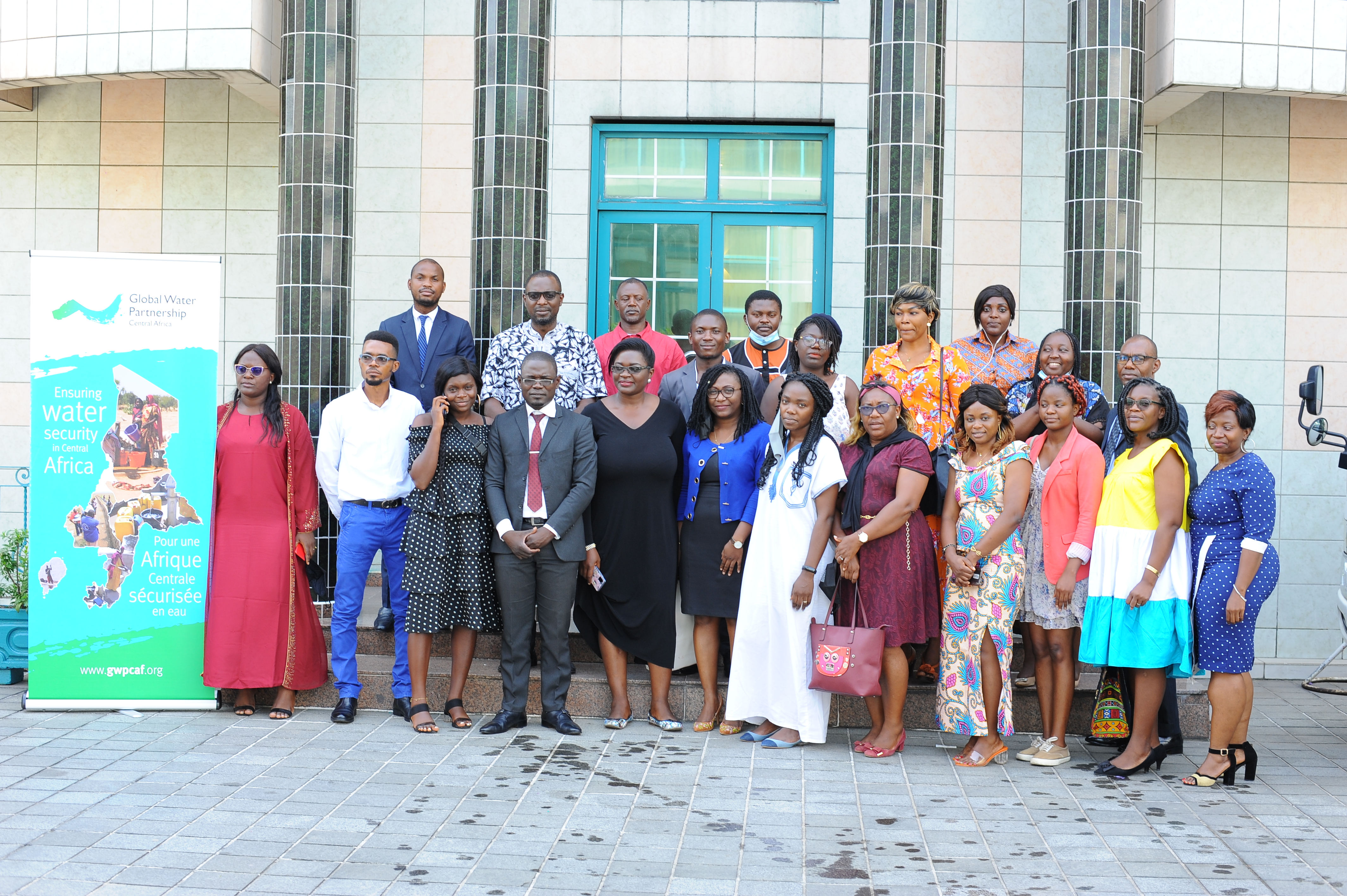The two-day workshop had as principal objective to educate the media on the content of these texts so they can popularize them through a more informative media coverage of topics related to these sectors. Fifteen media representatives, (70% of which were women) from the print , online and audio-visual media, took part in this workshop. Also, present was a representative of the communication unit of the Ministry of Water Resources and Energy (MINEE), experts from the Ministry of Environment, Nature Protection and Sustainable Development (MINEPDED) and the Ministry of Water Resources and Energy.
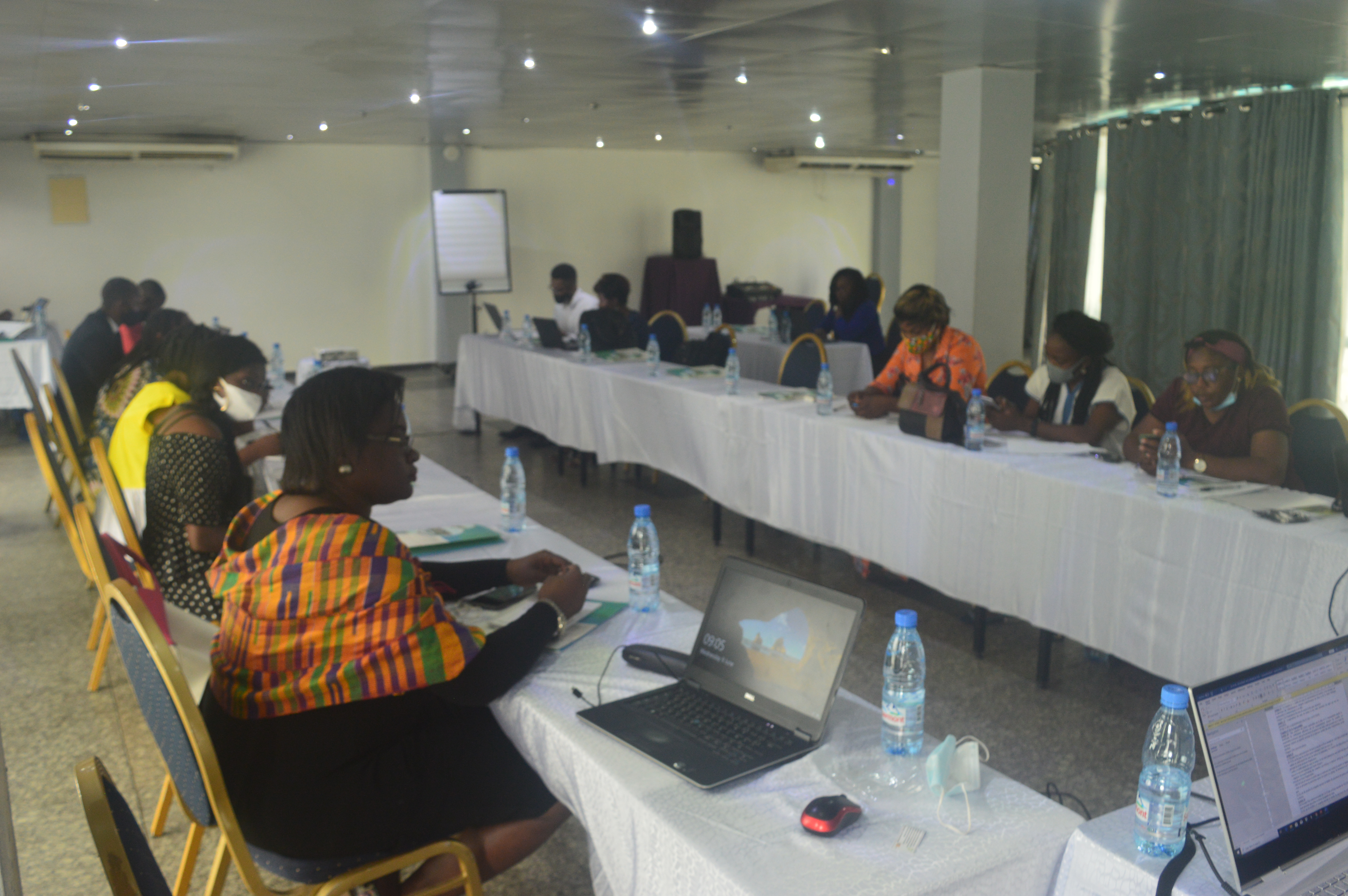
The opening ceremony was marked by short speeches from the GWP-CAf Executive Secretary Hycinth Banseka and the IUCN Representative, Mewouth ArmelThe key message was for journalists to capitalize this learning experience to ensure a meaningful participation from them and the general public in the collective action for sustainable natural resource management at the national and regional level.
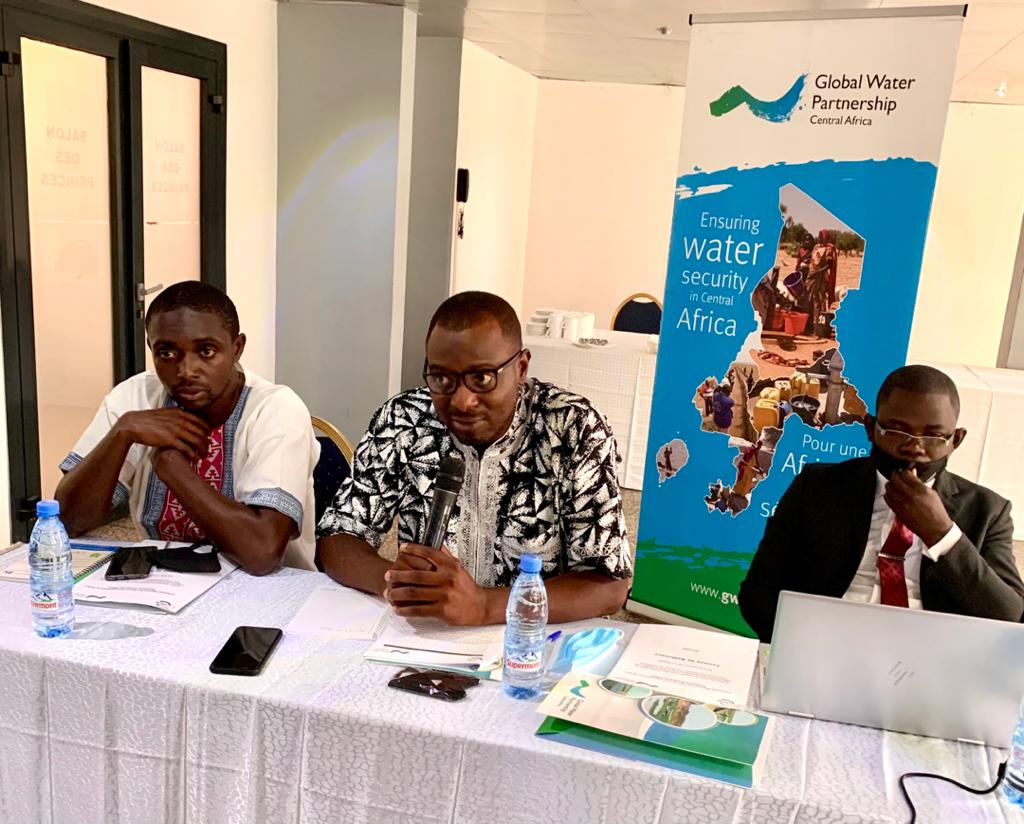
The presentations began with a background of Integrated Water Resource Management (IWRM) and an overview of some key related regional policies (Lake Chad Basin Water Chart, the Agreement creating CICOS and its addendum) . The MINEPDED Expert, Valerie Tsama presented the Law N°96/12 of 05 August 1996 on the framework law on environmental management in Cameroon and the National Adaptation Plan for Climate Change (NAPCC) with a focus on the active participation of women in climate adaptation actions as well as the integration of their concerns in policies and programs geared towards advancing the country’s climate adaptation efforts.
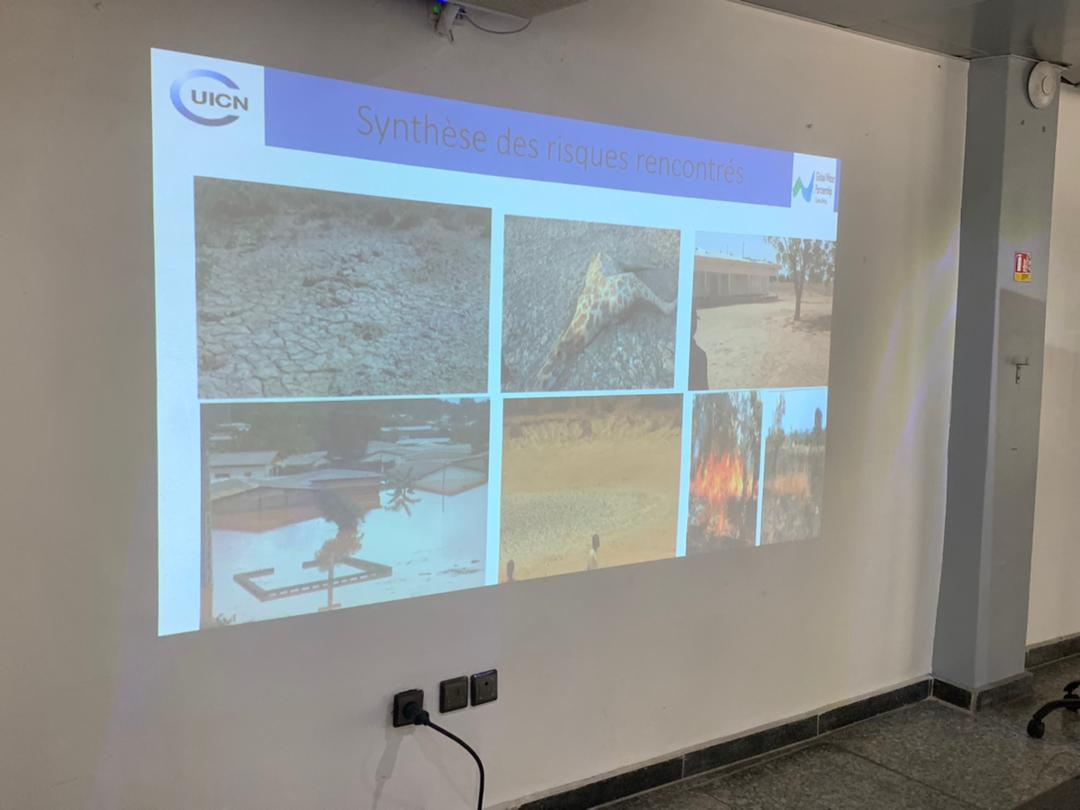
The water experts, Emile Maina and Rodrigue Metala highlighted key areas of some national water laws and decrees clearly stating the role of the government in managing this resource which is often confused with the role of the country’s water supply company. They also highlighted the responsibility of the population in water management and existing related legal sanctions which are little-known. To add perspective, GWP-CAf Communications Officer, Amabo Samyra made the final presentation on the role and responsibility of the media in these sectors and how to present related information in an interesting manner that will capture public interest and increase visibility of the existing laws and policies.
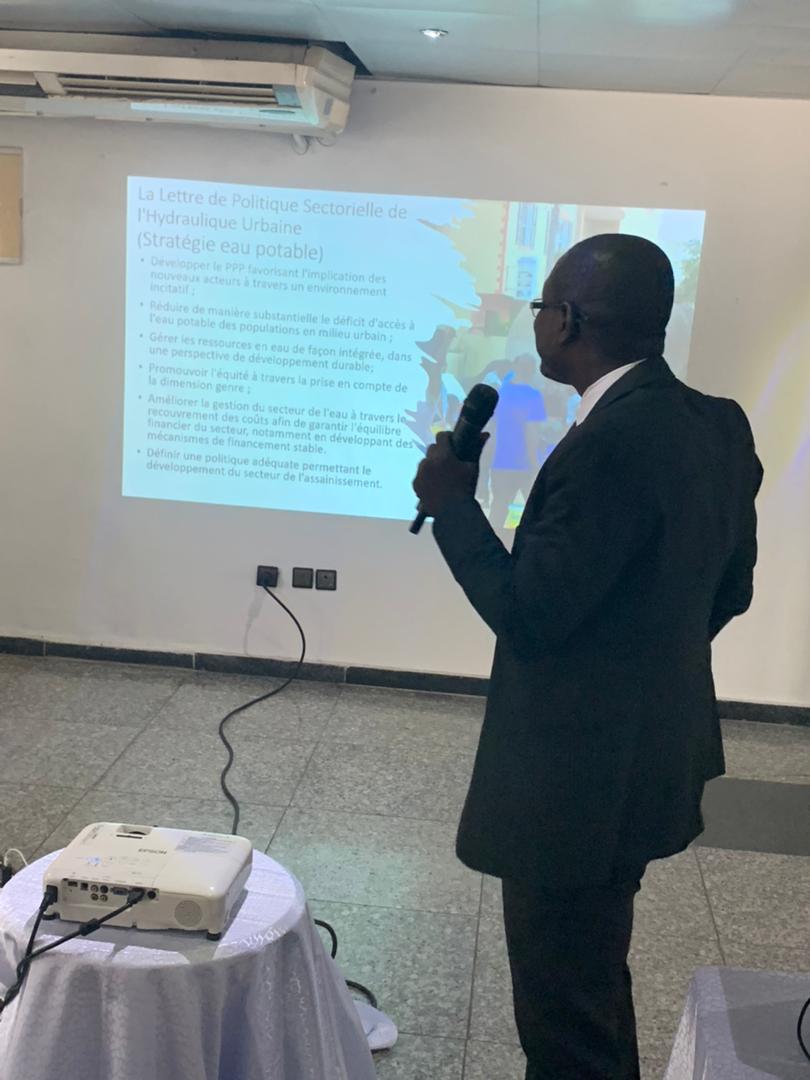
In the question-and-answer session which followed, participants expressed their concerns related to access to water, water pricing, availability of resource persons, limited access to legal texts and data on water, climate and the environment, the legislative and regulatory framework in terms of waste management in Cameroon, all of which were addressed by the experts.
On day two, participants identified mechanisms (methods, needs, and challenges) through which the media can popularize texts/laws. They also proposed orientations for key messages and audio-visual elements to be used to better inform the public on problems related to water, climate and the environment and the laws that seek to address them.
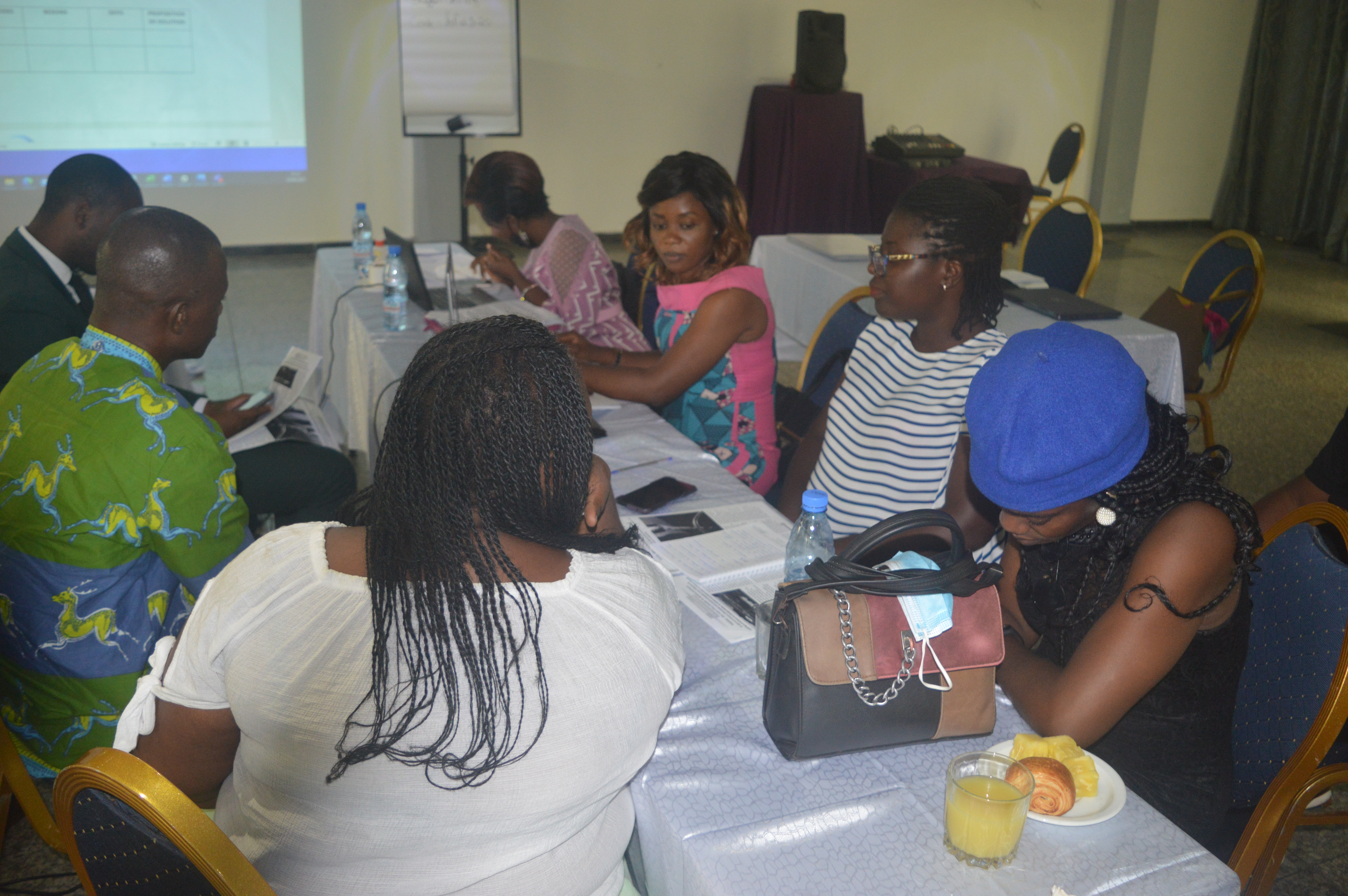 At the end of the workshop, the following recommendations were made to:
At the end of the workshop, the following recommendations were made to:
The State
- Improve communication with the media and facilitate access to quality information;
- Get actively involved with the educating the population on issues related to water, climate and the environment (e.g. in schools);
Partners
- Accompany journalists in the medium and long term through capacity building workshop, creation of knowledge exchange platforms etc.
Journalists
- Initiate discussions with program managers and chief editors to create a dedicated media space natural resource subjects;
Speaking on the workshop, a participant Ebie Sylvie of Vision 4 TV said, “It was very good experience and it was particularly interesting to learn more about the water framework law of 1998”. Another participant, Epee Philippe of Pena Mundi, a community radio station in Douala said,“This workshop has given me the much needed knowledge on IWRM and I'm inspired to create a radio program titled, “Edinguele” which means ‘Nature’ in the Duala local language. The once-a-month program, will cover issues related to water, climate and the environment”.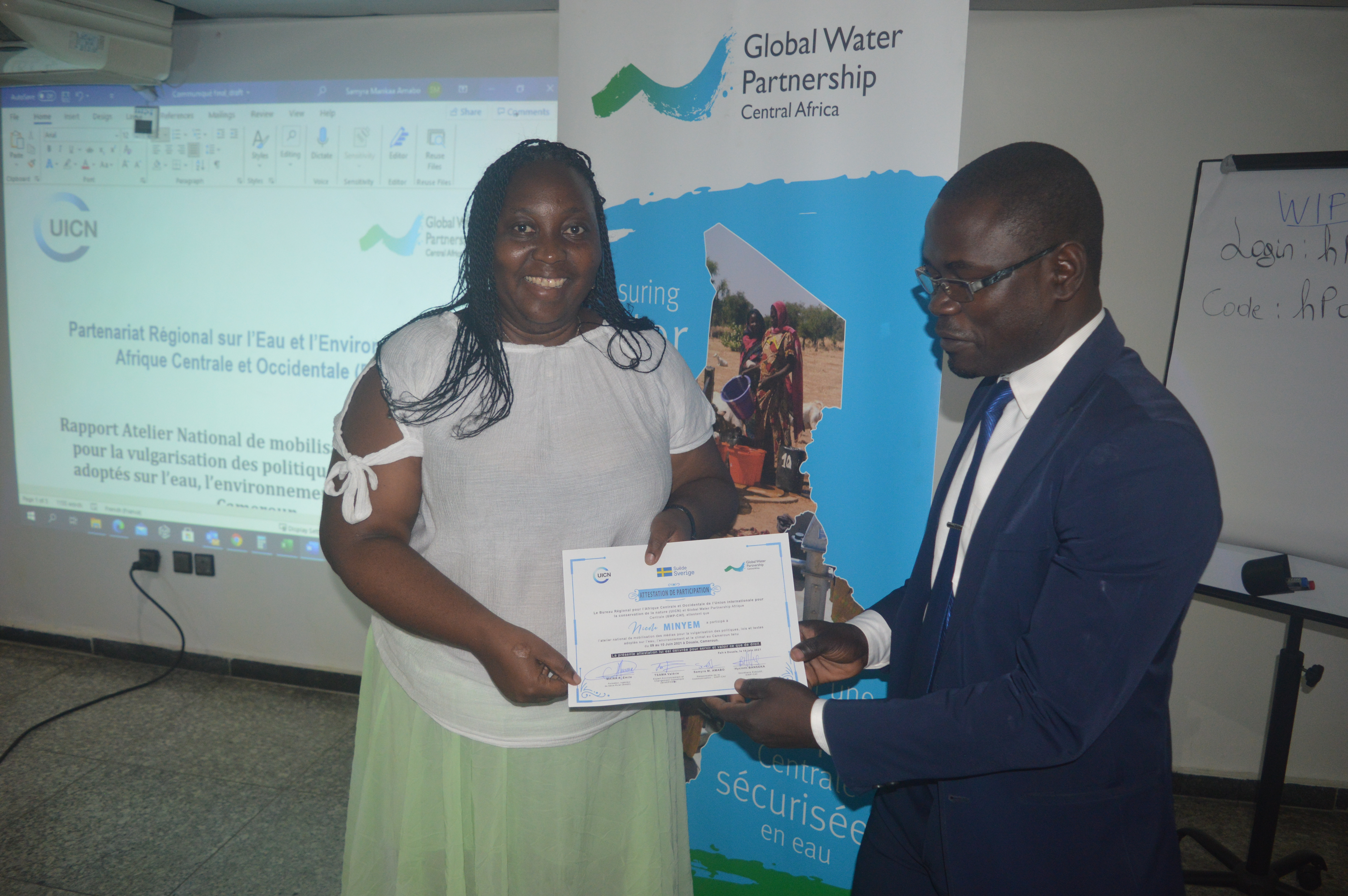
About the Regional Partnership for Water and the Environment for Central and West Africa (PREE)
PREE is financed by the Swiss International Development Cooperation Agency (Sida) and implemented by the Central and West Africa Office of the International Union for Conservation of Nature (IUCN-PACO) in collaboration with GWP West Africa (GWP-WAf) and GWP Central Africa(GWP-CAf). The project is in its second year of implementation and GWP-CAf is supporting GWP-WAf with the implementation of activities within the Central Africa region.
